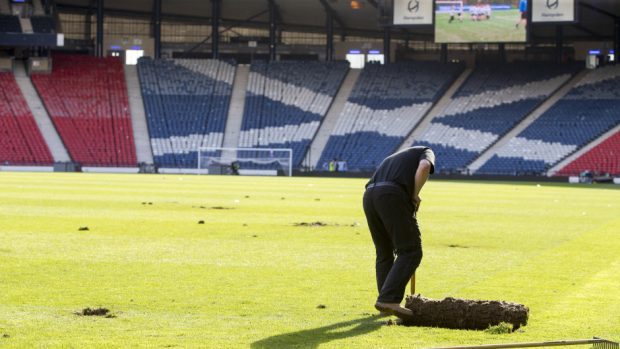More than a third of footballers surveyed in Scotland say they have received threats from fans on match day.
The findings, from a survey by players’ union Fifpro, mean that Scottish players receive three times the violent threats seen elsewhere.
A fifth of players in Scotland also said they had suffered discrimination relating to race, religion or sexual orientation.
The views comprised 169 players from nine randomly picked Scottish clubs. Celtic and Rangers were not among the clubs chosen.
World players’ union Fifpro said it had carried out the “biggest ever survey of professional athletes” and the results “destroy the myth that all footballers are millionaires living in a protective bubble”.
The results show most footballers earn less than the average British salary, are often paid late, are bullied in the work place and have little job security.
FIFPro general secretary Theo Van Seggelen said: “This report for the first time provides a detailed and accurate picture of what the average professional player experiences.
“We now have an evidence base for the reforms that are needed in the football industry. Overdue payables, forced transfers and training alone – all this must be a thing of the past.
“We need to build a package of measures with all stakeholders. Clubs, leagues, confederations and FIFA must accept those failures of our industry.
“We need to guarantee minimum employment standards for all players and clubs in all countries, reform the international regulations and think about the economic future of football.”
Fraser Wishart, chief executive of the Professional Footballers’ Association Scotland, said his members had “made it clear” that “some supporters overstep the mark”.
“We are approaching 2017 and what was deemed acceptable many years ago is not now,” he said.
“What we call in Scotland ‘banter’ and comment about a player’s performance are, of course, fine, but today’s players are not willing to accept threatening, abusive or discriminatory chants and comment as part of our game.”
